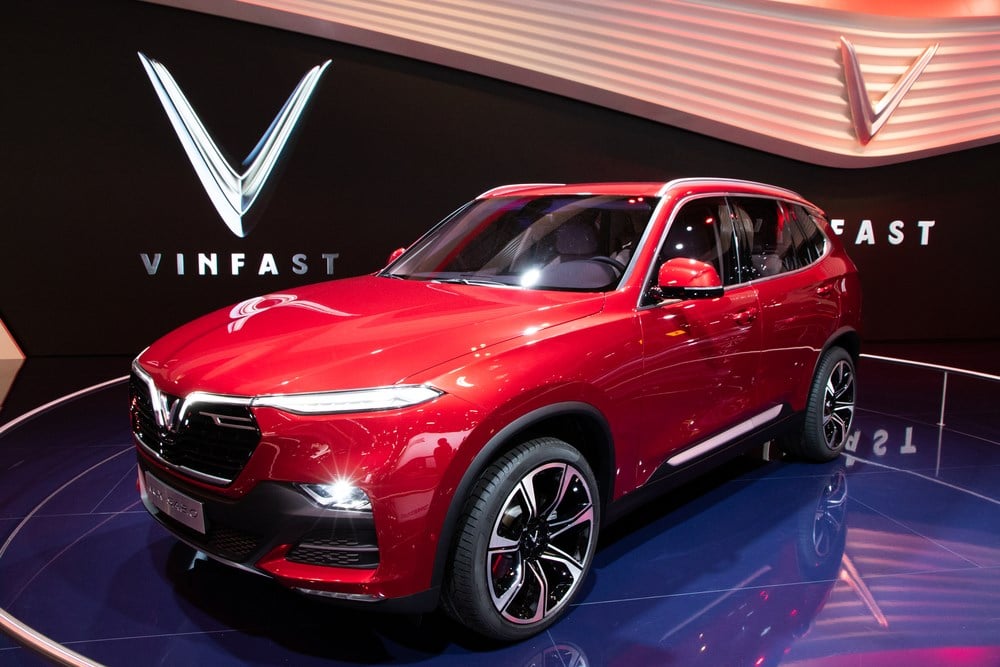
One of the most astonishing and widely discussed subjects in individual stocks revolves around the unpredictability and volatility of a Vietnamese electric vehicle manufacturer.
VinFast Auto Ltd. (NASDAQ: VFS) plunged into the public market through a SPAC IPO at the beginning of the month. Merely a couple of weeks post its market debut, VFS shares experienced an astounding surge of more than 800%, propelling its valuation to nearly $200 billion.
Reaching its pinnacle this week at around $93 per share, the company was the third most valuable car manufacturer globally, behind Toyota and Tesla. Since its debut, it has had an incredible range, with a low of $9.11 and a high of $93.
Even though the stock has retraced over 50% from its peak levels and continues to fall, down over 11% at the time of writing, its valuation remains elevated, at around $80 billion. Given that the car manufacturer's projected sales for this year are around 50,000 vehicles, the question arises: Should you consider purchasing the dip?
What is VinFast?
VinFast, based in Hai Phong City, Vietnam, is an automotive manufacturer involved in both automobile and e-scooter businesses in Vietnam and the United States. The company operates through several segments: automobiles, e-scooters, spare parts and aftermarket services.
In the automobile segment, it specializes in designing, developing, manufacturing and selling cars and electric buses. The E-scooter segment focuses on the design, development, manufacturing and sales of electric scooters. VinFast also sells spare parts and aftermarket services for automobiles and e-scooters.
Last year, the company sold close to 24,000 cars and so far this year, 11,300 electric vehicles. The company has launched six EV models. However, the company experienced a 10% sales decline in 2022 and a further decline in 2023.
If the stock hasn't risen due to increasing sales or changing fundamentals, what caused the volatility?
The Supply-Demand Imbalance
The founder of VFS, Pham Nhat Vuong, controls and owns 99% of the company, leaving only 1% of the shares accessible to the public.
Although there are 2.32 billion shares outstanding, only about 7.2 million are part of the float for public trading. As a result, the company has a limited availability of tradeable shares in VFS, creating a significant supply-demand imbalance. That imbalance resulted in a substantial surge higher and volatility.
Low-float stocks, especially those experiencing a surge in volume and popularity, are heavily prone to substantial volatility. The scarce supply can lead to significant price swings after the slightest change in buying or selling activity.
However, the demand-supply imbalance will not always be a factor for VFS. As the excitement surrounding the stock and its volume begin to lower, so will the volatility. The potential impending share release from the lockup agreements and the company’s need to raise capital for expansion will also lead to increased supply and potential price drops.
Should You Invest in VFS?
The extreme volatility and price swings experienced in the stock since making its debut should sound the alarm for cautious investors looking to gain exposure to the electric vehicle sector. By all standards, VFS has become a meme stock in the short term, gaining immense popularity, speculation and surging volume online amid the wild price action.
Due to heightened volatility, inability to efficiently manage risk, decreasing sales and supply-demand imbalance, VFS may not be the best choice for investors looking for exposure to the fast-growing electric vehicle sector.



